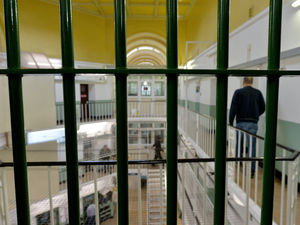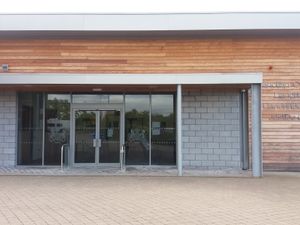Boredom and isolation blamed after dozens of drug finds at Shropshire prison
Drugs were discovered in Shropshire's prison on dozens of occasions last year, figures have revealed.

Some prisoners across England and Wales have turned to using drugs because of chronic boredom and isolation, the prisons inspector found in a report on the impact of the coronavirus pandemic.
Ministry of Justice data reveals 57 searches uncovered drugs within HMP Stoke Heath, near Market Drayton, in the year to March – significantly down from 133 the previous year.
The most commonly-found drug – where the type was specified – was psychoactive substances, with 26 seizures made over the year.
Across England and Wales, the number of drug finds in prisons fell six per cent to 20,300 in 2020-21 – a reduction Her Majesty's Prison and Probation Service has linked to restrictions placed on prisons during the pandemic.
However, there was an increase in discoveries of psychoactive substances – the most commonly-found drug type nationally – and cocaine.
In March last year a five-tier restriction scale was imposed on prisons in a bid to protect inmates and staff from the spread of Covid-19.
They ranged from ongoing testing if there was no case in a prison, to a full lockdown if there was an active outbreak – which meant no time outside for prisoners and meals served only at cell doors.
In an annual report for 2020-21, Her Majesty's Inspectorate of Prisons for England and Wales said out of 70 prisoners interviewed across six prisons, most had spent the pandemic locked in their cells for more than 22 hours a day.
The report continued: "Some prisoners had turned to using drugs to manage their isolation and chronic boredom."
Frances Crook, chief executive of penal reform charity the Howard League, said drugs were a "scourge" in prisons.
She added: "They have a devastating impact on the lives of prisoners and their families, and we know that the number of confiscations recorded even before the pandemic did not tell the whole story about the true scale of the problem."
The charity wants the Government to focus less on the tightening prison security and more on building relationships and working with prisoners through training and exercise to combat the issue.
The MoJ figures also show the number of seizures of other banned item in prisons last year.
At HMP Stoke Heath, officers discovered mobile phones on eight occasions, alcohol 50 times and weapons on 36 occasions.
Since 2016, HMPPS said it had taken measures to target the supply of banned items in prisons.
They included a rollout of specialist search teams, new airport-style scanners and mobile phone detection technology.
But mandatory random drug testing has been severely disrupted during the pandemic year, the service acknowledged.
A Ministry of Justice spokesperson said: "Our £100 million investment to bolster security through X-ray body scanners and extra searches continues to stop drugs getting into the hands of prisoners.
“This is part of wider funding to make jails safer, while working closely with healthcare providers to ensure offenders have the support they need to live drug-free upon release.”





